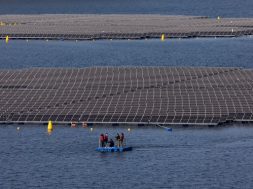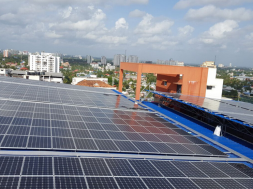
With a focus on infrastructure, the World Bank arm International Finance Corp. (IFC) and Japan International Cooperation Agency (JICA) plan to co-finance up to $1.5 billion in emerging market private sector projects. The first such investment will be made in a 414MW power project in Bangladesh. “IFC, a member of the World Bank Group, and the Japan International Cooperation Agency (JICA) are planning to co-finance up to $1.5 billion in high-impact private sector projects over the next five years under a partnership that aims to modernize infrastructure and expand access to basic services for under-served communities in emerging markets,” IFC said in a statement on Monday. This comes against the backdrop of India implementing its ambitious infrastructure development programmes in sectors such as electricity, roads and ports. The country plans to invest as much as Rs3.96 trillion in creating and upgrading infrastructure in the current fiscal.
“The partnership establishes principles for enhancing cooperation between IFC and JICA—which will co-finance private sector projects by providing debt and equity, or both. The initiative will also support Japan’s business development efforts in emerging markets,” the IFC statement added. Japan, on its part, has been helping India with some of the infrastructure projects such as the Mumbai-Ahmedabad high-speed rail corridor or bullet train, which will be funded by JICA. The private sector lending arm of the World Bank, IFC has an active direct private equity-style investment practice, apart from lending to companies in India. It also has an active limited partner portfolio in India where it backs private equity and venture capital funds focused on India.
“IFC and JICA will offer structured finance in renewable energy, energy efficiency, water, and transportation. The two institutions will also help provide financing for corporations working in sectors essential for economic growth and development, such as infrastructure, microfinance, finance for small and medium enterprises, agribusiness, and health care,” the statement said. With infrastructure projects having long gestation periods requiring loans with a long tenure, any such loan at a low interest rate will help Indian businesses. A case in point is the clean energy sector. India’s growing green economy has attracted many private sector businesses which plan to participate in the government’s push for providing clean energy access to its population. India plans to generate 175 giga watts (GW) of renewable energy by 2022. Of this, 100GW is to come from solar power projects.















